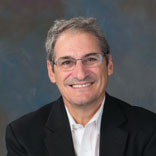The Pulteney StreetSurvey

PROPHECY FOR THE PRESENT
The Jewish philosopher Martin Buber says a prophet’s major role is not to predict the future but to call people to act in the present. In general, Judaism is very present-focused: the challenge of the present moment is to maximize your positive impact on the world and on other people. In the Bible, the prophets are always calling out the corruption of the moment and calling on people to act morally, to work towards justice. In that sense, Israelite prophecy is one of the lasting contributions of Jewish culture to Western culture, because you often have a powerless person who has the gall and the courage to stand up to authority — the king, the people in power — and to call them to a higher value system.
As humans, we have a unique ability to project what the future might be based on our knowledge of the past and the present. However, we live in the ongoing, split-second present moment; once the past is gone, it’s gone, and our future yet hasn’t come — it’s in the realm of possibility but not actuality. Buber and many Jewish philosophers talk about the prophet as pointing to the usable past and looking to a better future, meaning the prophet’s goal, and the real moral force of prophecy, is to assess the contemporary situation and see how it falls short of the ideal future. For Jews, the fulfillment of that future is the betterment of this world in which we live. The past is important because there are these formative events, like the Exodus and the giving of the Torah, and the future exists out there all the time but as a fully realized present; that is, the future is not some heavenly realm, not some other world, but this present historical, political, social world that we’re always working to make better.
Steven Kepnes ’74 is Professor of World Religions and Jewish Studies, as well as Director of Chapel House and Director of the Fund for the Study of the Great Religions, at Colgate University. He is author and editor of several books, including The Future of Jewish Theology and most recently Cambridge Companion to Jewish Theology.
